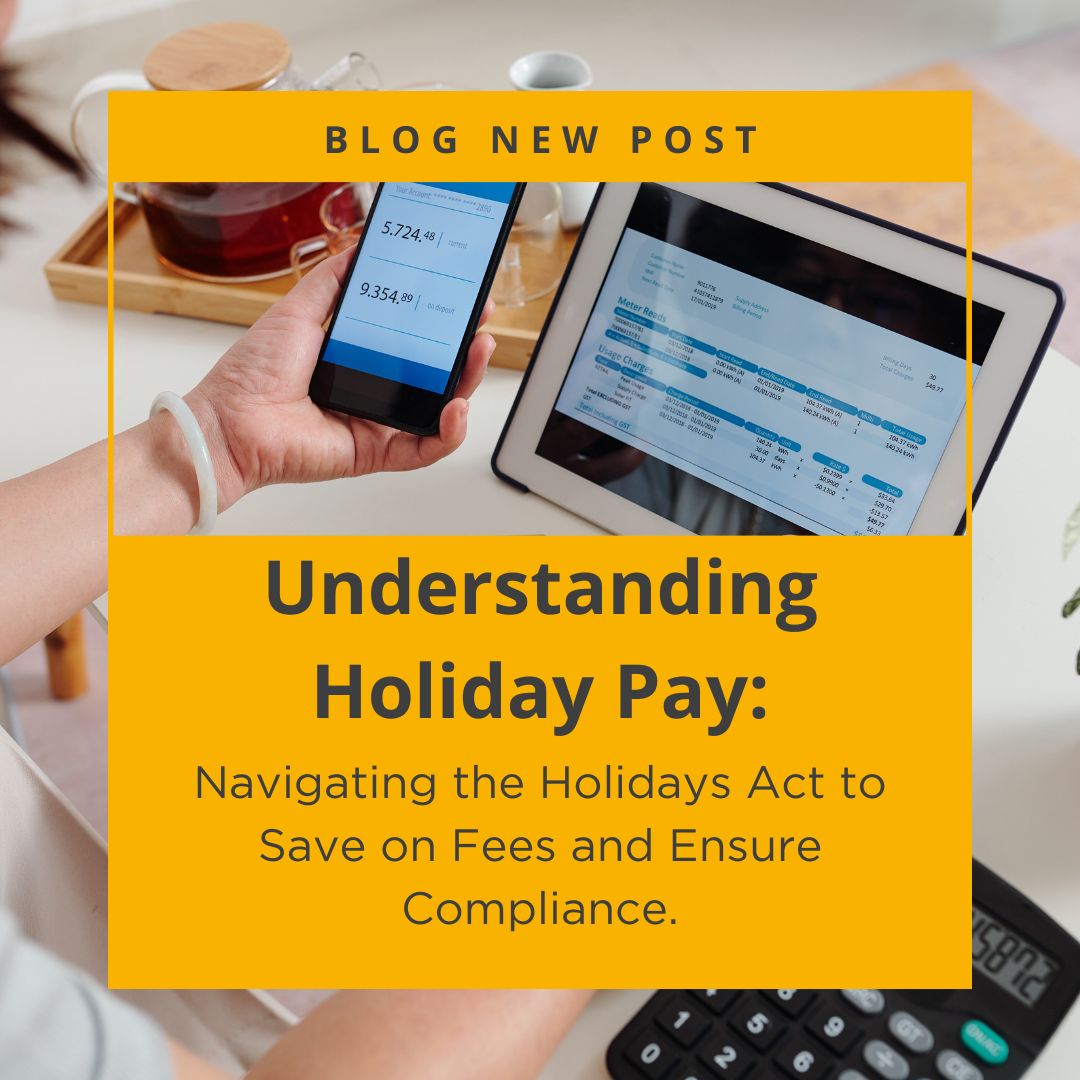
Understanding Holiday Pay for New Zealand Employers
The holiday season is fast approaching, and for Kiwi businesses, it means more than just beach trips and merry gatherings. It’s the time to gear up and ensure your payroll management is as sunny as a summer’s day. One crucial aspect often overlooked is understanding and implementing the Holidays Act correctly and how it impacts your business.
What is the Holidays Act
The Holidays Act 2023 in New Zealand gives your employees the right to time off. It doesn’t have a dedicated provision for leave in advance; it’s typically up to the employer’s discretion. Employees at minimum earn four weeks of holidays after a year of uninterrupted employment, but they can potentially take leave in advance based on a pro-rata arrangement (like, they could request two weeks’ leave after six months of service).
A Common Snag: Lack of Understanding
Some businesses make changes that can lead to a tangled mess further down the line. For instance, they might bring in new employees without informing their payroll manager. But here’s the deal: any change in the real world, like shifting a casual employee to permanent, must also be reflected accurately in your payroll software and calculations. It’s not just a change in work status; it’s a shift in employment terms and leave calculations.
An Example: Tale of John and Manager Rachel
Let’s paint a picture to illustrate the importance of understanding and managing the Holidays Act. Meet John, initially hired as a ‘pay-as-you-go’ casual employee. But as time rolled on, John’s days worked became more regular, creating a work pattern. In cases like this, where a casual employee starts picking up shifts more frequently, it’s essential to recognize the shift to a more consistent work pattern. This recognition is vital to avoid costly slip-ups.
In this scenario, John transitions from casual to permanent employment due to his consistent work pattern. To ensure a sweet-as transition, what should Manager Rachel do?
A) Give John the New Contract, John signs and she files it with HR.
B) Tell Payroll, to review the contract, John signs & Payroll terminates his old Employment Agreed Terms & sets John up under the new Agreed Terms.
The right answer is (B). It’s crucial to get payroll involved even before the new contract is signed. Payroll needs to review the new terms of the agreement, especially the date on which the old contract ended and the new one kicks off. Plus, they can help you decipher any tricky clauses that might need a bit of explaining, both for the employee and the boss.
The Holidays Act – A Kiwi Key
One of the essential elements in this context is the Holidays Act. If changes in employee agreed terms aren’t squared away correctly in the payroll system, not only can it lead to the employer failing to meet their legal obligations and the snowball effect of costs to fix, but it can also lead to employees being obliged to ‘payback’ holiday pay already dished out during their anniversary year.
Understanding specific dates is vital. For instance, if an employee’s casual employment ends on the 10th of June, and they jump into part-time (work pattern) employment on the 11th of June, it’s not just a change; it’s like when a Kiwi is going from one job to another.
The Holidays Act is currently under review with the government, but until it’s sorted to meet the nation’s variable and yes even flexible work environments for ALL kinds of work patterns, employers in Aotearoa must have a rock-solid grasp of employment law. And remember, “What goes into the payroll system is what comes out.” It’s not just the system responsible for payroll calculations; it’s the choice cuts of data entered. The involvement, information advised, and provided to your certified payroll manager should always be an employer’s first step.
Get a Holiday Acts Guide
If you’re keen on education and professional development for your payroll crew, we’re your go-to source. We can steer you in the right direction to make sure your payroll process is smooth. Don’t hold back from asking questions or reaching out for a bit of professional help when needed. Please message us with your questions. It can save you not only cash or compliance implications streaming way back from up to 7 years but also a heap of stress!
Looking for bookkeeping tips? Check out the blog linked below.
Recent Comments